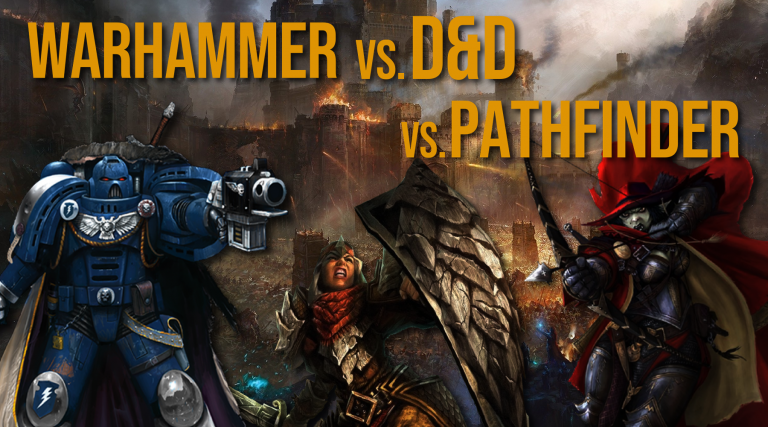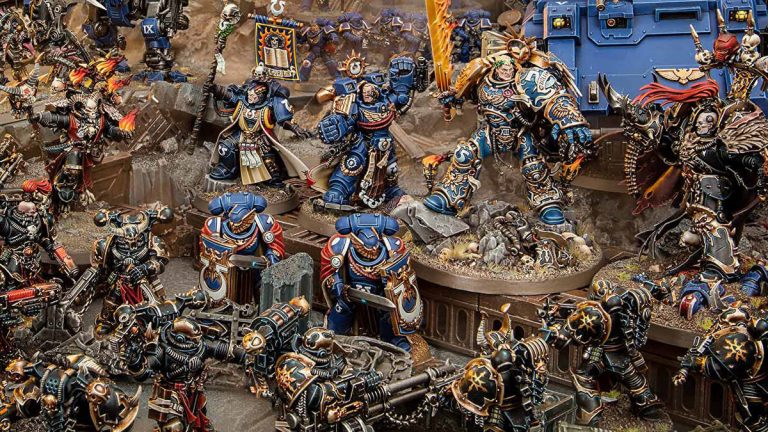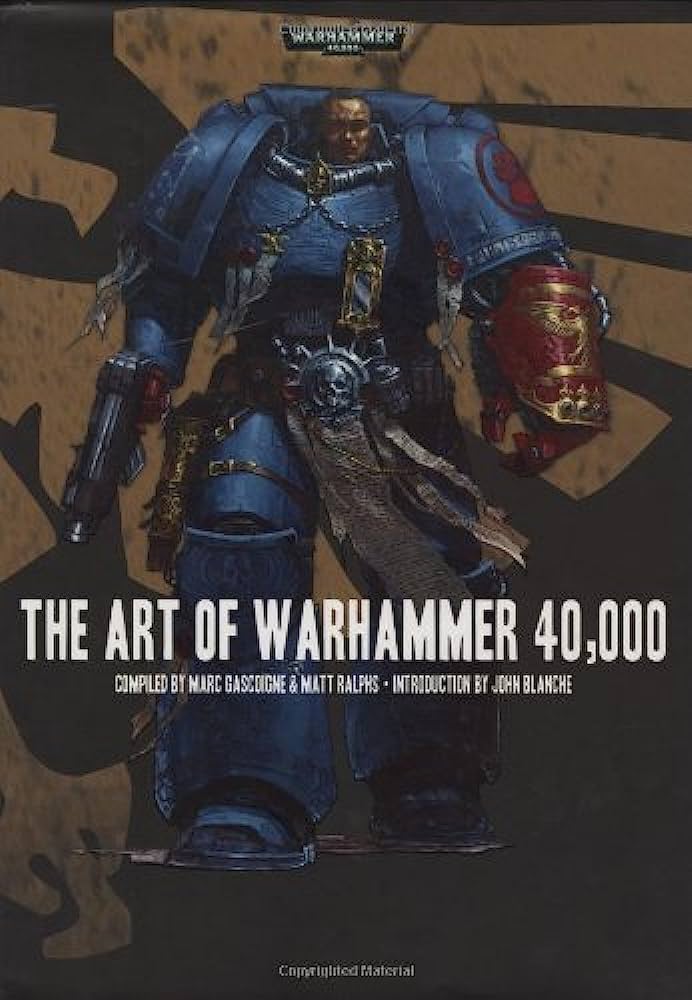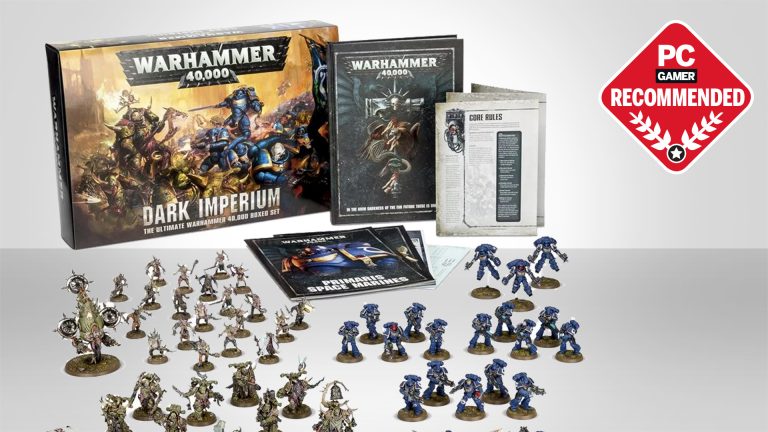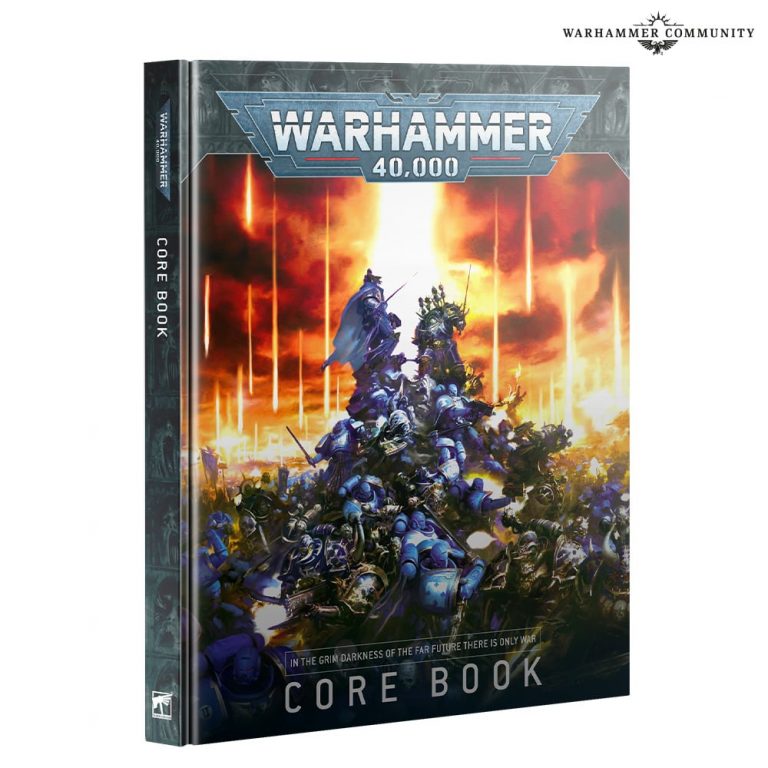Is Warhammer 40k A Horror?
Have you ever wondered if Warhammer 40k is a horror? Well, prepare yourself for a thrilling journey through the dark and twisted realms of this iconic tabletop game. Warhammer 40k is not your typical game of strategy and tactics; it’s a bone-chilling, spine-tingling experience that will leave you on the edge of your seat. From the eerie and grotesque creatures that inhabit the Warhammer universe to the grim and dystopian settings, this game is a true horror masterpiece.
In the grim darkness of the 41st millennium, where the forces of chaos and evil reign supreme, Warhammer 40k immerses players in a nightmarish world filled with unspeakable horrors. The game delves deep into the realms of gothic horror, with its gory battles, terrifying creatures, and haunting landscapes. With its rich lore and dark themes, Warhammer 40k has carved a niche for itself as one of the most atmospheric and immersive horror experiences in the gaming world.
So, buckle up and prepare yourself for a journey into the darkness. In this article, we will explore the elements that make Warhammer 40k a spine-chilling horror and delve into the twisted depths of this captivating game. Get ready to uncover the secrets and horrors that lie within the Warhammer 40k universe.
Warhammer 40k is not strictly a horror game, but it does contain elements of horror. The grimdark setting, with its dystopian future and constant warfare, can create a sense of dread and unease. The game also features terrifying creatures, such as the Chaos Daemons and Tyranids, which can instill fear in players. However, Warhammer 40k is primarily a science fiction and tabletop wargame, focusing on strategy and storytelling. So while it may have horror elements, it is not solely a horror game.

Is Warhammer 40k a Horror?
Warhammer 40k is a tabletop wargame that has garnered a massive following since its release in 1987. It is known for its expansive lore, intricate miniatures, and intense battles. While it may not be categorized specifically as a horror game, it does contain elements of horror that contribute to its dark and gritty atmosphere.
The Dark and Grim Universe
In the Warhammer 40k universe, humanity is constantly under threat from various alien races, daemonic entities, and even its own corrupt leaders. The setting is characterized by a dystopian future where war is constant, and the survival of humanity hangs in the balance. The lore of Warhammer 40k is filled with tales of horror, despair, and the struggle against overwhelming odds.
One of the key aspects that contribute to the horror elements in Warhammer 40k is the cosmic horror of the Warp. The Warp is an alternate dimension that is home to daemonic entities and serves as a means of faster-than-light travel for the denizens of the galaxy. However, it is also a malevolent and chaotic realm that corrupts and mutates those who come into contact with it. The Warp is filled with nightmarish creatures and twisted horrors that can drive individuals to madness.
The Influence of Lovecraftian Horror
Warhammer 40k draws inspiration from various sources, and one of the notable influences is the works of H.P. Lovecraft. Lovecraftian horror is characterized by the concept of cosmic horror, where the universe is populated by ancient and unfathomable beings that are beyond human comprehension. These beings are often portrayed as immensely powerful and malevolent, and their mere presence can drive individuals to madness.
In the Warhammer 40k universe, the Chaos Gods and their daemonic servants share similarities with Lovecraftian entities. They are ancient and immensely powerful beings that are worshipped by cults and corrupt individuals. The Chaos Gods embody various aspects of horror, such as Nurgle, the god of disease and decay, and Khorne, the god of blood and violence. Their influence spreads throughout the galaxy, causing suffering and despair.
The Horrors of War
Warhammer 40k is primarily a game of war, and it portrays the horrors of conflict in a gruesome and visceral manner. The battles are often depicted as brutal and merciless, with soldiers and warriors engaged in close-quarters combat, facing death at every turn. The miniatures themselves showcase the grotesque and nightmarish aspects of war, with mutated creatures, demonic beings, and heavily armored soldiers.
The lore of Warhammer 40k explores the psychological toll of war on its characters. It delves into the trauma, fear, and desperation that individuals experience when faced with the horrors of battle. The themes of sacrifice, loyalty, and the cost of war are prevalent throughout the narratives, adding depth and a sense of realism to the game.
The Role of Horror in the Gameplay
While Warhammer 40k is primarily a game of strategy and tactics, the horror elements play a significant role in shaping the gameplay experience. The universe is filled with dangerous and terrifying creatures that players must contend with. The unpredictability of the Warp and the influence of Chaos can lead to unexpected events and challenges during gameplay.
Furthermore, the atmosphere of the game is designed to evoke a sense of unease and tension. The dark and grim aesthetic, coupled with the haunting artwork and immersive storytelling, creates an immersive and atmospheric experience. Players are constantly aware of the lurking horrors and the ever-present threat of annihilation, adding an element of suspense and horror to the game.
In conclusion, while Warhammer 40k may not be categorized specifically as a horror game, it undeniably contains elements of horror that contribute to its dark and gritty atmosphere. The cosmic horror of the Warp, the influence of Lovecraftian entities, the portrayal of the horrors of war, and the role of horror in gameplay all contribute to the overall experience. Warhammer 40k is a unique blend of sci-fi, fantasy, and horror that has captivated players for decades.
Key Takeaways: Is Warhammer 40k a Horror?
- Warhammer 40k has elements of horror, but it is not solely a horror genre.
- The game is set in a dark and grim future where war is constant, creating a sense of dread and tension.
- Monstrous creatures, supernatural powers, and terrifying aliens add to the horror atmosphere.
- However, Warhammer 40k is primarily a science fiction and fantasy universe with elements of action and strategy.
- It offers a rich lore and vast universe for players to explore, with a focus on intense battles and epic storytelling.
Frequently Asked Questions
Warhammer 40k is a popular tabletop wargame that has a dark and gritty setting. It combines elements of science fiction and fantasy, with an emphasis on warfare and conflict. One question that often comes up is whether Warhammer 40k can be considered a horror game. Let’s explore this topic further.
Question 1: How would you define horror in the context of Warhammer 40k?
In the context of Warhammer 40k, horror refers to the elements of the game that evoke fear, dread, and a sense of impending doom. The setting is rife with terrifying creatures, nightmarish landscapes, and a bleak atmosphere. It delves into themes of corruption, madness, and the horrors of war. While horror is certainly a prominent aspect of the game, it is not the sole focus.
Warhammer 40k also explores other genres such as science fiction and fantasy, incorporating elements of epic battles, strategic gameplay, and intricate lore. It is this combination of horror and other genres that makes Warhammer 40k a unique and captivating experience.
Question 2: What are some examples of horror elements in Warhammer 40k?
Warhammer 40k is known for its dark and disturbing imagery. It features grotesque creatures like daemons and Tyranids, whose appearance alone can be deeply unsettling. The setting is filled with grim and desolate worlds, where humanity struggles to survive against overwhelming odds.
Psychological horror is also prevalent in Warhammer 40k. The game explores the moral dilemmas faced by its characters, delving into topics such as sacrifice, corruption, and the loss of humanity. The constant threat of chaos and the horrors it brings add an extra layer of tension and fear to the game.
Question 3: Is horror the main focus of Warhammer 40k?
While horror is a significant aspect of Warhammer 40k, it is not the main focus of the game. Warhammer 40k is a wargame that emphasizes strategic gameplay, army building, and tactical decision-making. It offers a rich and immersive universe with a vast amount of lore and history.
Players are drawn to Warhammer 40k for its intricate storytelling, epic battles, and the opportunity to create their own narratives within the game. While horror elements enhance the overall experience, they are just one piece of the puzzle that makes Warhammer 40k so engaging.
Question 4: Can Warhammer 40k be enjoyed by horror fans?
Absolutely! Warhammer 40k provides a unique blend of genres that can appeal to a wide range of players, including horror fans. The game offers a dark and atmospheric setting that is filled with terrifying creatures and nightmarish scenarios.
For horror fans, Warhammer 40k can be a thrilling and immersive experience. It allows them to explore the darker side of the game’s universe, facing off against horrors beyond imagination. Whether it’s the relentless hordes of the Tyranids or the insidious whispers of chaos, Warhammer 40k offers plenty of scares for those who enjoy the horror genre.
Question 5: Are there any other games similar to Warhammer 40k that focus more on horror?
While Warhammer 40k incorporates horror elements, there are other games that focus more specifically on the horror genre. One example is the tabletop game “Call of Cthulhu,” inspired by the works of H.P. Lovecraft. It delves deep into cosmic horror, with players facing the unfathomable horrors of the Cthulhu Mythos.
There are also video games such as “Resident Evil” and “Silent Hill” that offer intense horror experiences. These games rely heavily on atmospheric scares, psychological horror, and survival mechanics. If you’re looking for a more focused horror experience, these games might be worth exploring alongside Warhammer 40k.
5 HORRIFYING Moments in Warhammer 40k Lore
Final Summary: Is Warhammer 40k a Horror?
After diving into the dark and immersive world of Warhammer 40k, it’s clear that this beloved tabletop game is more than just a sci-fi epic. While it may not fit neatly into the horror genre, Warhammer 40k undeniably possesses elements of horror that add depth and intrigue to its storytelling. From the grim and dystopian setting to the terrifying creatures and cosmic horrors, Warhammer 40k taps into our primal fears and keeps us on the edge of our seats.
One of the key factors that sets Warhammer 40k apart is its ability to elicit a sense of dread and foreboding. The grimdark atmosphere, where humanity is constantly facing the threat of annihilation, creates a haunting backdrop for the narrative. The depictions of chaos, with its nightmarish entities and twisted rituals, add an extra layer of horror. The game masterfully combines elements of science fiction, fantasy, and horror, resulting in a unique blend that captivates players and fans alike.
Warhammer 40k may not be a traditional horror experience, but it certainly draws from the genre to create a chilling and captivating universe. Whether you’re a fan of the game or simply curious about its dark allure, Warhammer 40k is sure to satisfy your craving for adventure and terror. So grab your dice, gather your army, and prepare to be immersed in a world where the line between heroism and horror is blurred, and the fate of the galaxy hangs in the balance.


